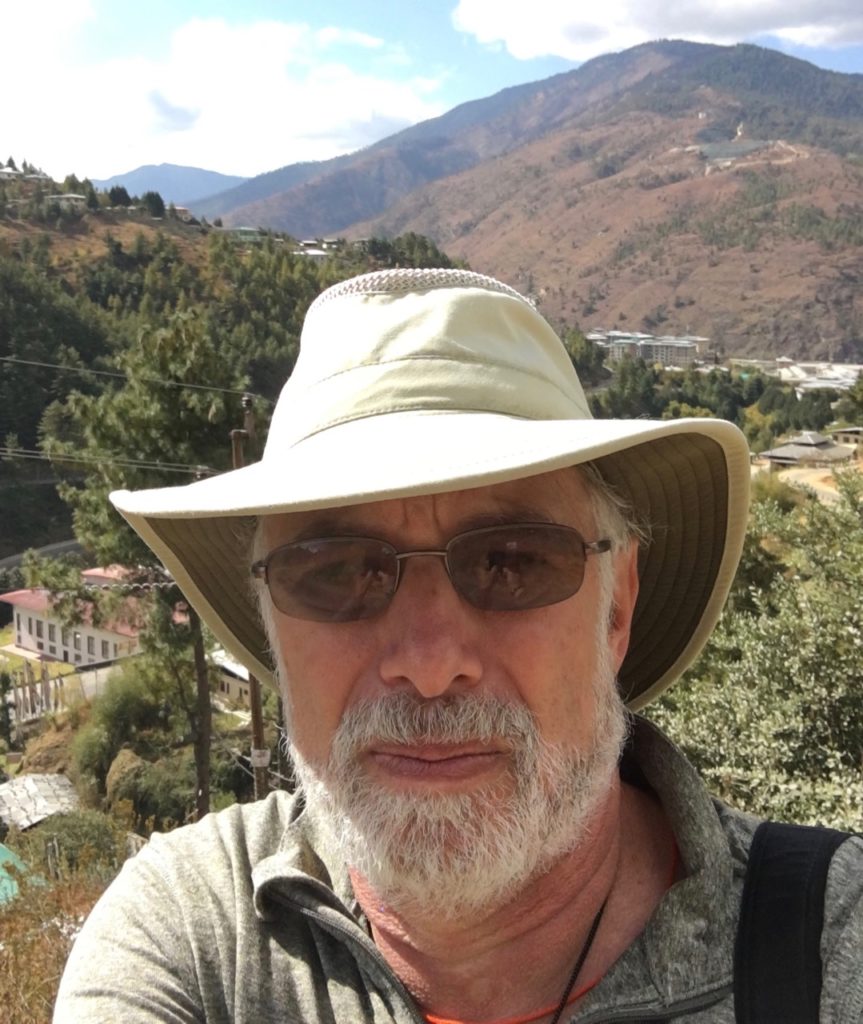OPINION: THE GOOD SOCIETY – RESOURCES FOR IMAGINING A BETTER WORLD (#2). WHERE DO WE LAND AFTER THE PANDEMIC?

Photo: Pixabay.com
We cannot solve our problems with the same thinking we used when we created them. – Albert Einstein

In my first column in this series, I wrote about my experiences teaching in a leadership program at UMass about the role of imagination and curiosity in building a better government and a better society. That course was guided by the idea that a better world is possible and that the first necessary step in enacting such a world is to imagine what that better world should look like.
This week I’d like to examine the challenge of imagining a post-pandemic world. In the last few weeks, the prospects of a post-pandemic world have provoked a lot of writing across the political spectrum. Writing about our post-pandemic future has proven to be somewhat or a Rorschach test for social commentators, and readers have been invited to see the pandemic as the opportunity to bring into fruition the political vision that individual writers espouse. Thus, writers have argued that the pandemic vindicates capitalism and also that the pandemic has laid bare the failures of capitalism and the inevitable doom that those failings will deliver. On the right, a post-pandemic vision often seems to involve an intensification of neo-liberal hegemony, with further tax cuts, widespread deregulation of corporations, unfettered markets, a virtual elimination of social spending and a diminution of citizen rights. On the left, writers envision replacing capitalism with a sustainable, compassionate society in which the basic needs of everyone are met and in which the burgeoning damage to our habitat is reversed. Where there seems to be agreement is that our return to the pre-pandemic status quo is unlikely.
As for the present, clearly what is happening now is not working for most of us. With nearly 90,000 Americans dead from the virus, with over 36 million Americans, unemployed, with millions rightly worried that they will not be able to meet their basic needs for work, food, shelter and health care, with no end to our troubles in sight and with the worst yet to come, we should all be thinking about what a post-pandemic world ought to look like and about how we might build the community/society/world that we desire and that we need.
The crises with which we now struggle invite us to rethink the fundamentals of our lives – work, school, economy, government, family and community, and to re-imagine the kind of world we would like to live in. Those who have begun to frame those questions have done so in both coarse and fine-grained ways, asking grand questions, like what does it mean to live in a society, what are our responsibilities to each other, can humanity survive climate change, and also very specific questions like how do we meet the needs of the hungry, the jobless and the homeless in our midst or, how can we be better prepared for the next pandemic. (See here, here, here and here for some creative ideas).
The pandemic demands that we rethink everything and that we come together (to the extent that social distancing permits) to interrogate the challenges that we now face. What are the greatest needs in our community? How will they be met? How do we ensure that the most vulnerable among us are visible and heard? How do we want to/need to reframe our priorities in light of the ongoing crises? How has the pandemic shaped our understanding of and ability to imagine what we want and what we need and of what is possible and what is necessary? What would we like to replace/change in a post-pandemic world? What needs to go and what ought to stay the same?
It is not sufficient for us to ponder these questions individually. We need to be doing this together. But so far, there hasn’t been a lot of that beyond occasional exchanges on social media.
Bruno Latour’s Post Pandemic Landing
But French philosopher/anthropologist/sociologist Bruno Latour recently offered us a model and a platform for having this conversation across communities and across national boundaries. Latour first posed a set of questions about the way we would like the world to be in a 2018 article.
Confronted by the prodigious challenges of the coronavirus pandemic, Latour began to ask more purposefully, what kind of society do we want when we come out of this crisis? What are we capable of imagining and what would we need to do to bring our imagined better world into existence. He then established an online platform and posted a series of questions in 11 languages, and invited readers to share their ideas. He plans to divide respondents into discussion groups to explore the responses more deeply beginning this week.
Latour starts from the premise that we cannot return to the previous “normal” and that we need to shape a vision that goes beyond “recovery” from the pandemic. He notes that a lot of current writing points us toward a return to the pre-pandemic norm, which may be comforting but may also be catastrophic as “the global climate emergency is only increasing”.
Latour exhorts us to take advantage of the current crisis to land on a more habitable earth. He says, “we must prepare ourselves for it now, during the confinement, before the return to “normal” erases from our memory the total strangeness of the situation. Let us take advantage of the forced suspension of most activities to take stock of those we would like to see discontinued and those, on the contrary, that we would like to see developed.” Indeed, many of us have changed our behaviors in ways that we would not have imagined possible prior to the pandemic.
The questions that Latour has posed follow. I will provide my own responses to these questions in my next column and invite readers to share their responses either with The Indy (amherstindy@gmail.com) or on Latour’s platform.
As of this writing, Latour was still accepting reader responses. Discussions are slated to begin this week and it is not clear whether Latour’s platform will continue to take new responses to the questions once the discussion begins.
Of course, every community would benefit from considering questions such as these. And these are but examples of a range of questions that we might pose about post-pandemic life. Latour directs us to think about a post-pandemic world in terms of specific actions because the emergency has constrained and altered our actions, giving us an opportunity to see what we do and don’t do in new ways. This is but one way we might frame envisioning a new world. As one small example of extending this exercise, I ask what a post-pandemic library might look like in another column in this issue of The Indy. We would benefit from having such conversations here in Amherst and I hope to use this column in the coming weeks to encourage us to undertake them.
The Questions
Question 1: What are the activities now suspended that you would like to see NOT resumed?
Question 2: Describe why you think this activity is harmful/ superfluous/ dangerous/inconsistent and how its disappearance/suspension/substitution would make the activities you favor easier/ more consistent. (Make a separate paragraph for each of the activities listed in question 1).
Question 3: What measures do you recommend to ensure that the workers/employees/agents/entrepreneurs who will no longer be able to continue in the activities you are removing are helped in their transition toward other activities.
Question 4: Which of the now suspended activities would you like to develop/resume or even create from scratch?
Question 5: Describe why this activity seems positive to you and how it makes it easier/ more harmonious/ consistent with other activities that you favor and helps to combat those that you consider unfavorable. (Make a separate paragraph for each of the activities listed in question 4).
Question 6: What measures do you recommend to help workers/ employees/ agents/ entrepreneurs acquire the capacities/ means/ income/ instruments to take over/ develop/ create this favored activity.
Latour asks us to find a way to compare our descriptions with those of others. He says “compiling and then superimposing the answers should gradually produce a landscape made of lines of conflict, alliances, controversy and opposition. This terrain may provide a concrete opportunity for creating the forms of political expression that these activities require”.
Art Keene is Emeritus Professor of Anthropology at UMass. He coached girls cross country at Amherst High School for 17 years and was a Town Meeting member for 20+ years. He has lived in Amherst since 1982. He is a member of The Amherst Indy Editorial Collective.

Great questions! Thanks for sharing them, Art. I’d like to see locally-based organic agriculture largely replace multinational chemiculture. Here in WMass, we are well on our way down that road–which has positive implications for the economy, for climate, and in many other areas. I’d also like to rethink the way restaurants function–much less crowding than in the past would be nice, but at the same time maintaining enough profitability to pay fair wages.